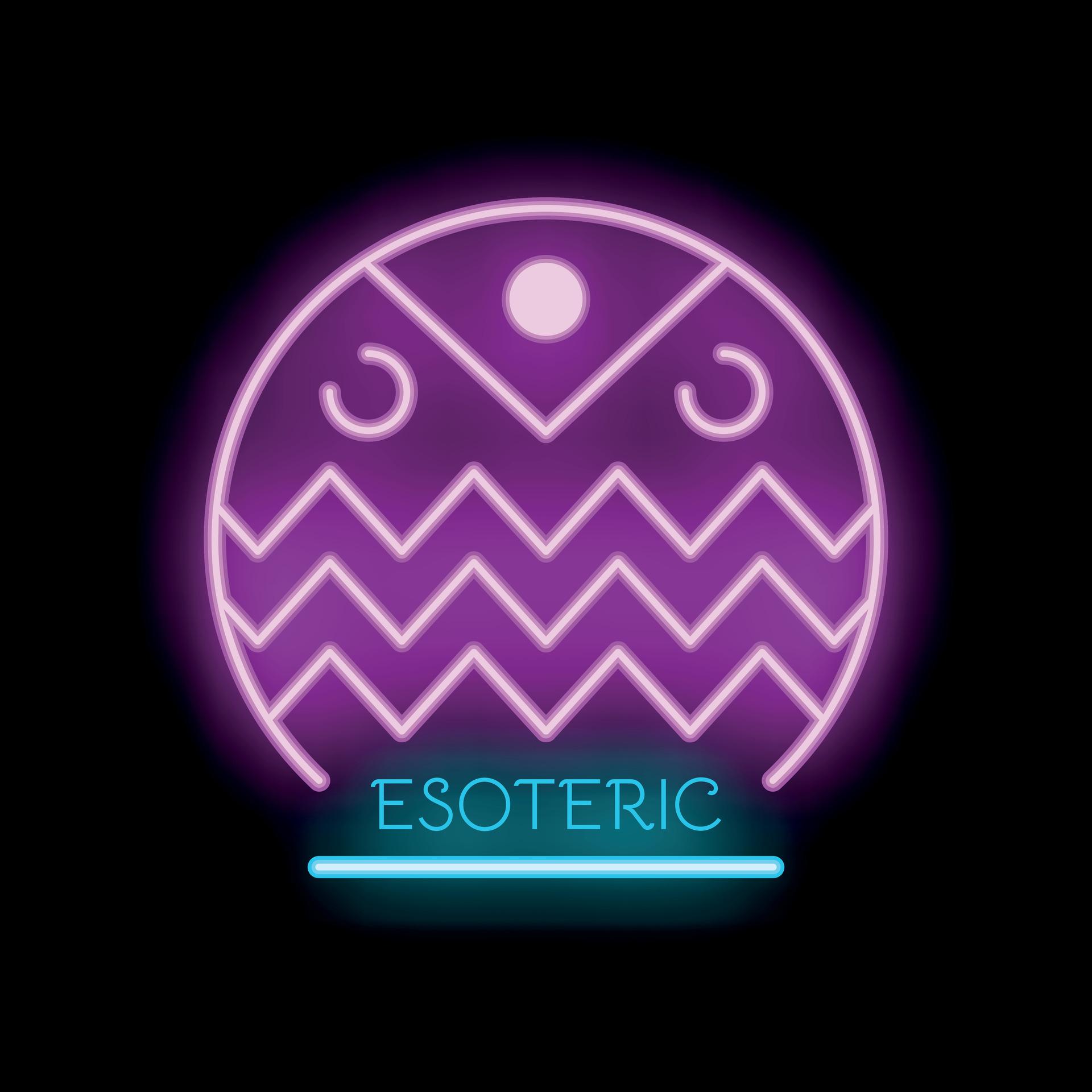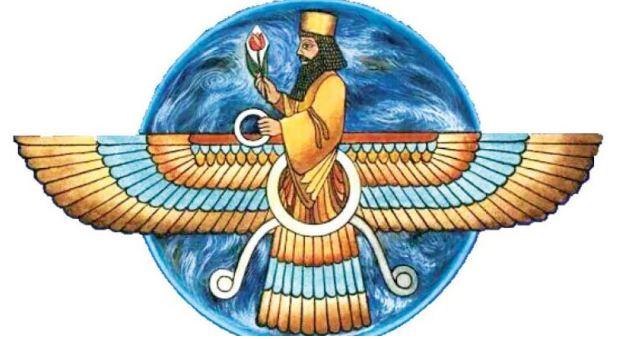Ahura Mazda
Ahura Mazda is the central deity in Zoroastrianism, and is the most important figure in the religion. He represents the supreme, all-powerful, and all-knowing god, the source of all good, truth, and order in the universe. Ahura Mazda is sometimes referred to as the "Wise Lord," and his very name reflects his divine attributes:
-
Ahura means "Lord" or "Spirit."
-
Mazda means "Wise" or "All-Knowing."
So, Ahura Mazda is often translated as the "Wise Lord" or the "Lord of Wisdom."
Key Aspects of Ahura Mazda
-
The Creator of the Universe:
-
Ahura Mazda is believed to have created the universe, including both the physical and spiritual realms. He created the world with purpose, order, and goodness, and it is his will that upholds the natural laws of the cosmos.
-
Everything that exists in the universe—light, life, and goodness—is a reflection of Ahura Mazda’s nature.
-
-
Monotheistic Belief:
-
Zoroastrianism is often considered one of the first monotheistic religions. Despite the religion’s dualistic elements (the struggle between Ahura Mazda and Angra Mainyu, the evil spirit), Ahura Mazda is the one true god, and all other divine beings, including the Amesha Spentas (Holy Immortals), are seen as emanations or attributes of his will.
-
He is the source of all creation, and nothing exists without him. His wisdom and goodness define everything in the universe.
-
-
Opposition to Angra Mainyu:
-
Ahura Mazda is in a constant struggle against Angra Mainyu (also known as Ahriman), the evil spirit who seeks to destroy Ahura Mazda’s creation. Angra Mainyu embodies chaos, lies, and evil, and his ultimate goal is to bring disorder and destruction to the world.
-
This cosmic battle between Asha (truth, order, and righteousness, associated with Ahura Mazda) and Druj (falsehood, disorder, and evil, associated with Angra Mainyu) is central to Zoroastrian teachings.
-
-
Attributes of Ahura Mazda:
-
Wisdom: Ahura Mazda is associated with supreme wisdom and knowledge. His decisions and creations are based on ultimate understanding and insight.
-
Goodness and Purity: He embodies goodness, truth, order, and light. He is completely pure, and everything associated with him reflects purity, righteousness, and fairness.
-
Omnipotence: As the creator of the universe, Ahura Mazda is believed to be omnipotent, having absolute power over creation and over the forces of good and evil.
-
Justice and Truth: Ahura Mazda is also the embodiment of justice. His will governs the natural law, and everything he creates is imbued with order and balance. Zoroastrians believe that living in accordance with Asha (truth and order) aligns individuals with the will of Ahura Mazda.
-
-
Ahura Mazda’s Emanations (Amesha Spentas): Ahura Mazda is not a solitary deity; rather, he has several divine emanations, known as the Amesha Spentas (Holy Immortals). These are divine beings or attributes that personify different aspects of creation and morality, and they assist Ahura Mazda in maintaining the cosmos and combating evil.
-
The Amesha Spentas include:
-
Vohu Manah (Good Mind)
-
Asha Vahishta (Best Truth)
-
Kshathra Vairya (Power and Dominion)
-
Spenta Armaiti (Holy Devotion)
-
Haurvatat (Wholeness)
-
Ameretat (Immortality)
-
-
Together with Ahura Mazda, they are responsible for maintaining the cosmic order and ensuring the balance between good and evil.
-
-
Ahura Mazda's Role in Human Life:
-
Zoroastrians believe that Ahura Mazda has given humans free will to choose between good and evil. The ethical path of truth and goodness is seen as following the will of Ahura Mazda. The key tenet of Zoroastrianism, "Good Thoughts, Good Words, Good Deeds," is a way for humans to align themselves with Ahura Mazda and counter the influence of Angra Mainyu.
-
Ahura Mazda is seen as guiding humanity through the Amesha Spentas, who personify divine qualities that help individuals make good decisions, live harmoniously with nature, and follow the path of righteousness.
-
-
The Final Triumph of Ahura Mazda:
-
The cosmic struggle between Ahura Mazda and Angra Mainyu is not seen as eternal. According to Zoroastrian belief, there will be a final renovation of the world in which Ahura Mazda will defeat Angra Mainyu, and the universe will be restored to its perfect, harmonious state.
-
Saoshyant, the Zoroastrian savior figure, will play a key role in this final victory. The coming of the Saoshyant will bring about the resurrection of the dead, the final judgment, and the defeat of evil.
-
After this final purification, Ahura Mazda will rule over a world where evil no longer exists, and all souls will be united with goodness and truth.
-
-
Worship of Ahura Mazda:
-
Ahura Mazda is worshiped through prayers, rituals, and offerings in fire temples. The sacred fire is seen as a symbol of Ahura Mazda’s divine presence.
-
Zoroastrians offer prayers that honor Ahura Mazda and ask for divine guidance in maintaining truth, goodness, and justice in their daily lives.
-
The daily rituals, such as the Yasna (the central liturgical prayer of Zoroastrianism), are dedicated to Ahura Mazda and seek to align the worshipper with the divine.
-
Ahura Mazda’s Influence on Other Religions:
-
Zoroastrianism and the figure of Ahura Mazda had a profound influence on the development of other Abrahamic religions, especially Judaism, Christianity, and Islam.
-
Concepts such as heaven and hell, angels and demons, and the idea of a final judgment can be traced back to Zoroastrian influence on these religions.
Conclusion:
Ahura Mazda is the supreme creator, the embodiment of goodness, truth, and wisdom, and the central figure in Zoroastrian theology. His teachings emphasize the importance of human choice, moral responsibility, and living in harmony with the divine order he established. He stands as a beacon of justice and purity in the ongoing cosmic struggle against evil, and Zoroastrians believe that his will ultimately leads to the restoration of a perfect world.
Links:





